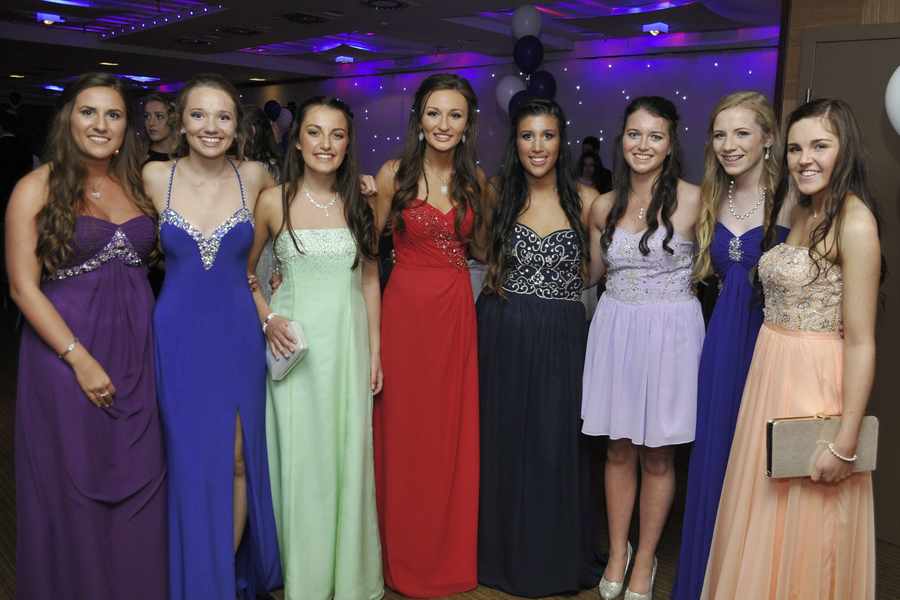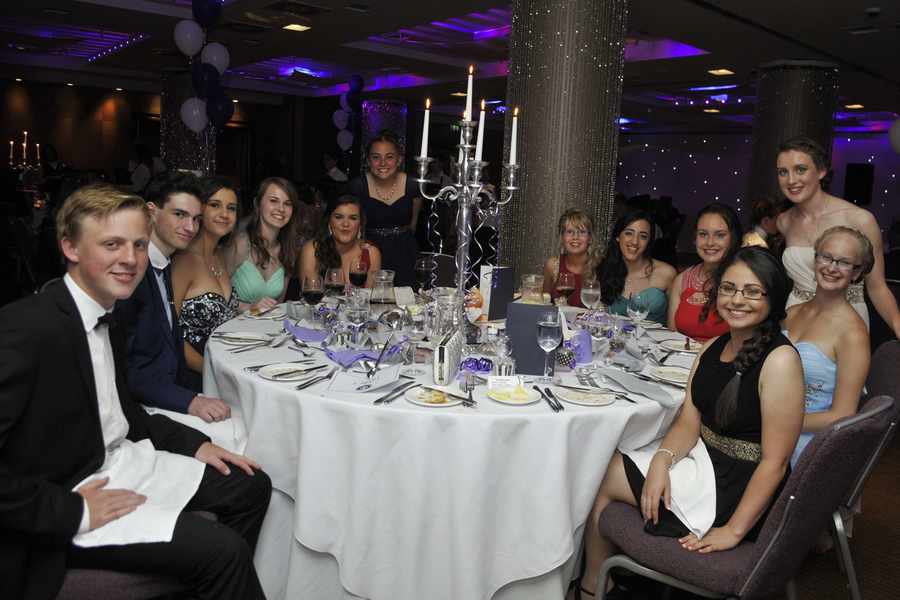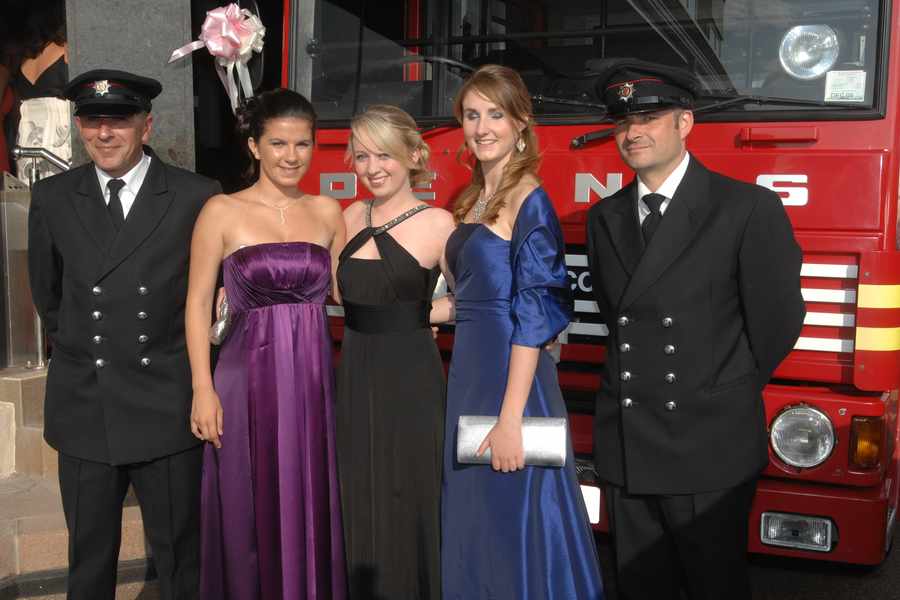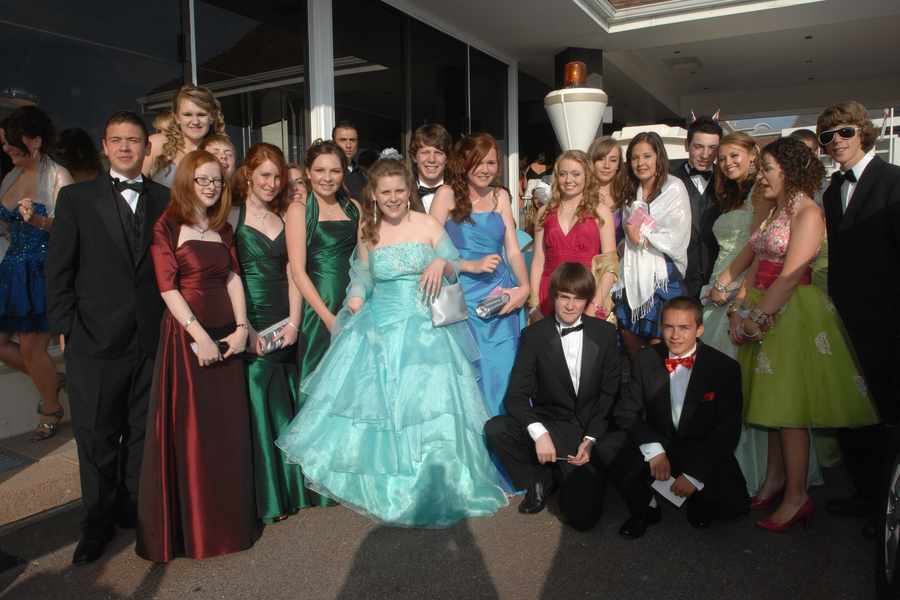Beaulieu School has also said that proms place too much of a financial strain on parents and that teachers can no longer be expected to take responsibility for helping to run the events and ensure the children are safe.
Beaulieu carried out a survey of Year 10 students asking for feedback on the Prom:
- 36 students requested a ball with partners
- 8 requested a ball without partners
- 6 requested a dinner/meal/afternoon tea as an alternative
- 34 did not respond[/breakout]
In a move that has caused anger among many students and some parents, Year 11 pupils taking their GCSEs this academic year will be the final group to have a prom – events which originated in the US but were introduced to Jersey around 15 years ago.
Explaining the reasons behind the decision in a letter sent to all parents yesterday, head teacher Chris Beirne says: ‘The rise of pre- and after- prom parties and the significant focus and distraction this event causes in the academic year, not to mention the growing expense and luxury foisted on parents in the preparation for this event, does not fit into the ethos of our school.

‘I have the added concern that I am expecting my staff to assume responsibility for managing and supervising this event in an era of increasing safeguarding risk to students and the staff themselves. This is a request that I no longer believe can be considered as reasonable.’
In quoting comments from one member of staff, the letter says: ‘The worry about alcohol and drug consumption at after-parties is also a considerable concern, especially with the tragedies that our community has suffered in the recent past.’
Dozens of students have joined a private Facebook group calling for the prom to be reinstated and parents have written to Mr Beirne.
In one letter a mother, who has a 15-year-old daughter, calls on the school to reconsider the decision.


‘Firstly I believe the abrupt and unilateral nature of the decision was ill-advised – neither the girls nor the parents were consulted about the possibility of the cancellation of the prom,’ she says.
She adds that a group of parents and students could be established to ensure the prom goes ahead and does not put extra pressure on staff.
‘Rather than distract girls from their studies, I believe that prom is a reward for all of their hard work,’ she says. ‘Prom represents a shared rite-of-passage for the girls, it is an important celebration for them and a milestone for the parents.
‘I chose Beaulieu for my daughter as I wanted her to be educated in a supportive, all-girl environment, where the goal is not simply to leave school with the highest possible grades but with a faith in herself and in the world. The girls may not need a prom, but they certainly deserve one.’
Mr Beirne concludes his letter by saying that as the majority of pupils stay on to complete A-levels the school now plans to consult students and parents about how to celebrate when they finish Year 13 at the age of 18. He also warns that any private event arranged to replace the prom cannot be associated with the school in any way.
This morning Beaulieu School released the following statement: ‘Since the release of a letter from the headmaster to our parents in relation to the school’s decision not to continue with a prom celebration for Year 11 from 2017, the school has received significant support from our parents in this matter. Many are very grateful to the headmaster for remaining firm in his decision and are respectful of the ethos of the school.’


Dear Parents/Guardians
Having consulted with my senior management team, the Parent Council and the student-safeguarding officer at DfESC, I have taken the unpopular decision of ending our provision of a Year 11 Prom from the next academic year.
The rise of pre and after Prom parties and the significant focus and distraction this event causes in the academic year, not to mention the growing expense and luxury foisted on parents in the preparation for this event, does not fit into the ethos of our school.
I have the added concern that I am expecting my staff to assume responsibility for managing and supervising this event in an era of increasing safeguarding risk to students and the staff themselves. This is a request that I no longer believe can be considered as reasonable.
I am aware of the huge emotion that exists around the Prom and I expect significant opposition, but that in itself indicates that in my view that it has become an event that is now out of perspective for a school based activity for 15-16 year olds.
Let me explain my reasoning to you in more detail:
School Proms were introduced to Jersey some 15 years ago and we all followed suit with the same. Over the past few years we have stopped to consider why we continue to offer a Year 11 Leavers’ Prom, when almost 95% of our students stay on until the end of Year 13.
At Beaulieu, the first Year 11 celebrations took place 11 years ago, held in the Town Hall. It was a dinner held to raise money for charity which was coordinated by parents and overseen by Beaulieu staff. The event has moved away from that and developed over the past few years into the high profile occasion it is currently.
Over these years, my staff have continued to give of their time and talents to organise and manage this event for students. They have done so willingly and in their own time, but they have also had the experience of dealing with many pastoral concerns associated with this event, which are unknown to many of you.
One of my colleagues wrote to me recently about this and I share the comments made with you to reflect upon, as indeed I have:
‘Having experienced the event from a number of perspectives – twice as a parent, as a Year 11 mentor and as a Year 11 subject teacher – I am convinced that the build up to the event and the day/evening itself are not positive, constructive or healthy experiences for many of the people involved’.
As a parent, the added stress we see our daughters going through during a year when there is so much existing stress associated with all that being a teenager involves, not to mention the GCSEs exams, is something many parents would prefer to shield their daughters from rather than encourage and endorse. Of course, the financial strain and the inevitable competition associated with this is another very unwelcome, and sometimes crushing, aspect for many parents. The worry about alcohol and drug consumption at after-parties is also a considerable concern, especially with the tragedies that our community has suffered in the recent past.
Two years ago, for many of my mentor group, I felt that the pressure to be slim, fashionable, have perfect skin, be tanned, be original yet fit the accepted mould, have a boyfriend, be invited to an after party, be invited to pre-drinks, have an original mode of transport, have hair, nails and make-up ‘done’, all led to (in my opinion) unacceptable anxiety. The search for the right dress is a quest that takes up many months and wastes precious time. The rife unpleasantness that having a similar dress to someone else, even from another school or a previous cohort causes, has been shocking to witness and certainly is not something that most parents and teachers would encourage or appreciate.
Doubtless there are many girls, and parents, for whom this event is important and pleasurable, but I wonder where the majority position really lies.’
A further concern is the presence of our students’ guests who attend the Prom, as we have no knowledge of their medical history or contact details for their parents. Again, this raises safeguarding concerns.
Irrespective of the majority, it is sometimes necessary to leave the 99% aside and seek to care for the 1%, as one student harmed, or at risk, is a price too high to pay and a risk I am not prepared to take at Beaulieu.
Many of you have written to me to express your concerns, and in some cases anger, at my decision. I am grateful that you are able to write so honestly and I am very aware that this decision would not be a welcome one to all. You should know that I have also received many letters and emails of support, with some parents expressing relief at the decision made.
I feel it is important to highlight that the Year 11 Prom is a non-curricular activity and not part of the School’s core business. It is therefore inappropriate that such an event risks impacting academic focus and pastoral issues.
In your correspondence, a number of you have advised me that you would wish to get together to support the girls in organising their own event. May I remind you that the liability and responsibility for any private party would remain with the organising parents and that you would not be able to make reference to the School or identify in the press, or elsewhere, this event as a ‘Beaulieu School Prom’.
We are proud of all our students and my decision has not been taken hastily or with any desire to cause distress, but rather out of my duty of care and responsibility for your daughter. The guidelines and regulations for running school events are very clear and I am no longer able to adhere to these, or to safely manage the risk associated with the same. This is therefore a necessary decision for me to take on behalf of the School.
Teachers and staff work hard to ensure that the success of our Year 11 students is celebrated and there are already events in place such as School Prize Giving and the Year 11 buffet which takes place on the day that study leave begins.
That said I would welcome, in due course, a chance to consult with you about how best to plan for this year group to have a celebration organised by the School at the end of their Year 13 studies, when they do actually graduate from Beaulieu and leave school. We currently offer our Year 13 leavers a celebratory mass with their families, followed by a drinks reception at School and the Year 13 students themselves also organise a leavers’ meal, to which staff are invited.
At this point, the majority of students are over 18 and we feel that these events create a formal rite of passage, establishing a lasting and special memory, along with an opportunity for the school to thank our parents and students for all they have given the school over their years with us. More importantly, this enables staff, students and parents to celebrate together in a safe setting. Such a celebration is far more appropriate for us as a Catholic school community to be able to enjoy together, enabling the School to further promote the values for which it stands.
Yours sincerely
Mr Chris Beirne

GRAND end-of-term functions have been in existence since the late 1800s, when the word ‘prom’ was first christened.
The name prom came about as a shortened form of the term promenade – which described the formal grand march of guests at the beginning of a ball.
The first proms were held in the elite colleges of north-east America, inspired by the debutante balls of the rich, where these ‘promenades’ would have taken place.
Middle-class parents admired the poise and composure of debutantes and began to organise formal dances as a way of instilling social skills and etiquette in their children.
The dances were strictly chaperoned and were often restricted to only the senior class. The first reference to the term ‘prom’ was made in 1894, in the journal of an Amherst College student, who described his invitation and attendance at an early prom at Smith College.
Although proms at that time were an important date in the college year, it was only when they then became instilled in high school life in the early 1900s that they began to take on the status they have today.
It is believed that these early high school proms emerged from the popularity of the college events, although when they started out they would have been relatively simple affairs. The occasion would involve tea, socialising, and dancing, but although students would attend in their Sunday best they would not purchase new clothes for the occasion.
By the 1930s, proms – in the form of a yearly class banquet – had become common across America. During this period, most proms were small affairs in the school gymnasium. The room would be decorated with crepe-paper streamers and couples would dance to music provided by a local amateur band or a record player.
In the 1940s, proms started to be mentioned in high school yearbooks for the first time. Then, in the 1950s, Americans started to enjoy the luxury of the post-war economy, so proms began to become more elaborate and expensive affairs.
During this period, it became very important to attend with the best-looking date, and being named Prom King or Queen, or a member of the ‘prom court’ guaranteed instant social status.
It was also during the 1950s that teenage girls began to pay more attention to their prom dresses and started spending large amounts of money on their outfits. Proms also started to be held in grander locations, such as hotel ballrooms and country clubs.
It was in the 1950s that proms first started to be seen as the pinnacle event of a high school student’s life. In the 1970s and 1980s, movies such as Grease, Back to the Future, Carrie and Footloose put proms onto the big screen and portrayed them as the ultimate ‘coming of age’ events.
As a result, proms became even larger events, while competition for titles such as Prom King and Queen became even fiercer – with students seeing the roles as being akin to royalty.
Proms were virtually unheard of in the UK until the late 1990s. It is believed that the first British events were held in Cambridge, where every school in the area had a special school ball.






